You’ve heard the things that people whisper about addicts. How many of them are true?
Emotions run high when the subject of addiction comes up. If the rumors about your addiction were untrue, why believe everything that you’ve heard about suboxone treatment? These myths create unnecessary treatment barriers that could be preventing you from fully pursuing recovery.
The truth is that suboxone addiction treatment can lower the risk of overdose, prevent cravings, blunt intoxication, and make detox bearable. At the moment, this safe and effective treatment can be difficult for some people to access. Our goal is to debunk some of the common suboxone myths to help stop the stigma and give more people access to this life-saving medication.
Keep reading to learn more about the five most common myths about pursuing suboxone treatment.
Myth #1: Many People Abuse Suboxone
While it is possible for a very determined person to abuse Suboxone, there isn’t much motivation to do so. Unlike conventional opioid drugs (heroin, oxycodone, and morphine), suboxone does not cause a large euphoric response. There is very little to motivate such abuse.
Those who do access and use suboxone illegally typically aren’t doing so to get high. The average abuser is using suboxone to self-treat symptoms of withdrawal. Many use it to combat their dependence on highly addictive substances like fentanyl.
The only reason to “abuse” suboxone would be because it’s inaccessible. Very few people would be accessing this medication through illegal channels if it was easier to acquire legally. If the majority of individuals are unable to access addiction treatment, the fault is with the system, not the addicts.
Myth #2: People on Suboxone Can’t Be in Recovery
Often, struggling addicts refuse suboxone treatments because of the belief that taking addiction medication would mean they’re still an addict. This is the result of policing and gatekeeping in the recovery community. Many of these “rules” are nearly 90 years old, created before medication-assisted recovery was an option.
Who gets to decide how one defines “recovery” today?
The definition of recovery is changing and expanding to encompass newer, contemporary methods of getting clean. Due to advances in medical science, we have a model that is helping us view opioid addiction as a chronic condition.
The reality is that medication is now a part of recovery. The rules and definitions should be changing, not the addicts.
Myth #3: Suboxone Is a Short-Term Treatment
Some people do use suboxone on a short-term basis. Others consider it a long-term treatment for a chronic illness.
An individual with a chronic medical illness like diabetes might use medication to manage their condition for life. Why have we chosen to treat chronic addiction differently?
At the end of the day, it’s up to the patient and his or her doctor to decide how best to use suboxone. The professionals at suboxone treatment centers can help guide you toward a solution that works for your lifestyle and goals. If that involves a long-term treatment protocol, that is an effective and valid option.
Myth #4: You Can Easily OD on Suboxone
If you are only taking suboxone, it is very difficult to overdose. Suboxone is a partial opiate receptor agonist. That means that there is a ceiling or limit on opiate receptor activation.
In essence, this means that it’s nearly impossible to achieve overdose using suboxone alone. Your body simply isn’t designed to respond to the medication that way. The cause of overdose is typically slowed breathing, and the ceiling would not allow your body to shut down to that extent.
If you have heard of someone ODing on suboxone, there is a high probability that they were mixing the medication with other drugs at the time. To achieve overdose, another drug or medication, such as a benzodiazepine, would need to instigate that sedative effect.
Myth #5: There’s No Point Without Therapy
The pandemic made access to treatment so challenging that the DEA made online suboxone treatment legal. A doctor could prescribe suboxone without ever seeing the patient face-to-face. Thus, medication alone became a form of complete and valid addiction treatment, and many lives changed as a result.
This is not the ideal treatment situation, however. In a perfect world, your treatment plan should be holistic and multifaceted. After all, addiction is a multifaceted problem and affects more than one aspect of your life.
Evidence suggests that treatment that includes therapy, housing and employment assistance, group support, and recovery coaching is more effective than medication in isolation. The sad truth is that very few addicts have access to such a complete range of services.
Even if there were enough qualified professionals to meet the needs of all of the struggling individuals in the country, the healthcare system creates its own barriers. Lack of health insurance is one of the biggest obstacles preventing this holistic approach from becoming the norm.
Thus, without a major systematic change, it’s unrealistic to expect that everyone who needs suboxone also has access to therapy, let alone other addiction services. Many individuals have reclaimed their lives using medication alone. It is not necessarily ideal, but it is possible.
Suboxone Treatment Is Real Treatment
Opioid addiction is a physical dependency as well as a mental one. Beginning suboxone treatment is a way to cut your battle in half, allowing the medication to handle the physical aspect while you work to get your life back on track. This safe, effective medication saves lives, and reducing the stigma will mean saving even more.
You deserve to be well, and a qualified suboxone doctor can help. Use our directory today to find the nearest provider.


